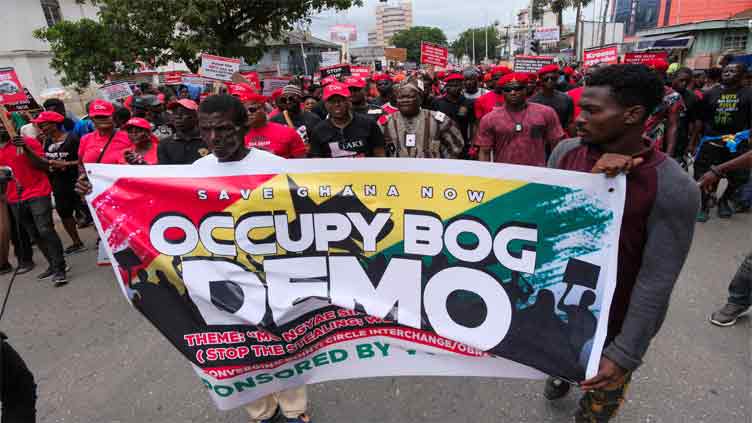You can't be more precise: Ghana protesters demand central bank governor resign

Business
People are hit hard by rising cost of living
ACCRA (Web Desk) – People around the world, especially in the poor and developing countries including Pakistan, are tired of rising cost of living, unemployment and food insecurity amid persistent record-high inflation and interest rates which have choked the economy.
They are expressing their anger in different ways, primarily targeting their governments over the failure to arrest the slide through protests and power of vote, whenever given an opportunity. It’s not a surprise that the incumbent leaders in nearly all countries are getting less popular with each passing day.
In the West, the reaction is making the far-right forces more attractive to the masses for one-size-fit-all solutions that are easy to grasp and remember but impossible to execute, thus endangering the democratic values.
But the state of affairs in Ghana – a country located on the west coast of Africa, as the anger and protest is more precise – an expression of people’s political wisdom.
Reuters reported that thousands took to the streets of Ghana's capital Accra on Tuesday demanding the central bank governor be removed for what they say is the mismanagement of the economy during the worst debt crisis in a generation.
One may recall that the State Bank of Pakistan has been totally independent as a result of the deal signed by the PTI government, meaning the central bank can devise and implement policies even against the wishes of sitting prime minister or the cabinet member looking after the financial affairs.
The demonstrations are the latest show of frustration with rising living costs, joblessness and hardship in one of West Africa's largest economies. Similar multi-day protests gripped the capital last month.
The crowd marched to the central bank's head office under the watch of riot police, blaring reggae from speakers and calling for bank governor Ernest Addison and his two deputies to resign. Many were dressed in red and black, colours typically worn at funerals.
"We want Addison out because he has shown us that he is not able to manage the Bank of Ghana," said Emmanuel Quarcoo, 29, who is unemployed.
"How can a whole Bank of Ghana go into loss. What are they selling?" he asked.
Ghana's central bank in July posted a record loss of 60.8 billion cedi ($5.3bn) for 2022, mostly due to debt restructuring.
Ghana, which produces gold, oil and cocoa, has sealed a deal with the International Monetary Fund for a $3bn, three-year loan programme to help redress the situation. Debt restructuring is one of the conditions to obtain those funds.
Addison, who has been in the post since 2017 and whose tenure runs for another two years, said last month that improved economic indicators would soon lead to higher incomes and purchasing power.
But a stable exchange rate, lower inflation and more robust growth have not yet helped those struggling to make ends meet.
"I joined the march today because the cost of living is high. No one is buying our wares and our children are suffering because we have no money to feed them," said 45-year-old trader Happy Agbezudor.

